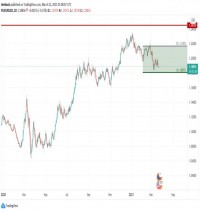|
Opalesque Industry Update - Hong Kong, Singapore and Taiwan remain the most attractive
destinations for global asset managers’ Ucits distribution in Asia, according to new research by
BNP Paribas Securities Services and Knadel, a specialist consultancy to the investment
management industry. However, challenges remain around fragmentation, regulation and
differences in culture which contribute to significant variations in take-up of Ucits in the region. 50 asset managers of varying size from Asia, Europe and the rest of the world were surveyed on their experiences of distributing Ucits funds in six markets across the region: Hong Kong, Japan, Malaysia, Singapore, South Korea and Taiwan. 75 per cent of respondents that distribute Ucits in Hong Kong, Singapore or Taiwan reported experiences that met or exceeded their expectations. Malaysia and South Korea emerged as smaller but rapidly maturing markets in the research while Japan, more focused on using local funds, is gradually increasing its appetite for Ucits. One consistent theme outlined by respondents was the time and cost associated with registering Ucits funds in the region.
Hong Kong, Singapore and Taiwan: cross-border hubs in Asia These three centres account for the majority of Ucits consumption in Asia. They benefit from the synergy of a strong asset management network, the experience of a large talent pool, and the infrastructure necessary to support distribution. Respondents cited gateway access to other Asian markets, particularly China, user-friendliness, and excellent business opportunities as most attractive in Hong Kong, Singapore and Taiwan where distribution is dominated by banks. In contrast, the time and cost of registering Ucits funds in the three hubs was identified as a significant challenge by respondents, who also reported a marked recent slow-down in the speed of approvals of Ucits in Hong Kong.
Malaysia and South Korea: rapidly maturing South Korea, while noted for its business opportunities, was identified by respondents as still presenting challenges in terms of language and culture. The market has less international sophistication than the hubs and respondents reported a degree of reluctance towards foreign funds. However, South Korea is focused on protecting its local fund industry and local investors are less accustomed to buying funds from foreigners. Overall, the nation continues to capitalise on its economic success in manufacturing and other industries, and many expect regulatory processes to improve. Japan: gradually increasing appetite Nine per cent of asset managers surveyed are currently distributing or planning to distribute Ucits in Japan, reflecting general market trends that indicate the country remains heavily in favour of domestic onshore funds. As a result, the survey respondents indicated a lack of business interest in distributing Ucits into Japan. However assets under management have grown steadily in the past decade and penetration is low. Fund flows remain resilient and as local investment opportunities remain subdued, Ucits could be seen as a means to gain global exposure and diversification. Quotes Commenting on the research, Mostapha Tahiri, head of asset and fund services Asia at BNP Paribas Securities Services said: “Ucits is an excellent framework that has brought confidence and harmonisation to global asset management. While the take-up of Ucits in Asia has been successful, our research concludes that key challenges remain. “Culture is important in terms of adapting to new jurisdictions, but asset managers must also address operational strategy and design service models that are fit for purpose. “Also critical to asset managers’ success with Ucits in Asia is choosing the right partner. Managers must cut through the fragmentation and understand the intricacies of each market to tap into Asia’s undoubted growth opportunities. Therefore, they need partners with sound local expertise and an on-the-ground presence in the region’s markets. “Nonetheless, Asia has an excellent economic foundation to create a positive environment for Ucits. With global assets under management set to reach USD 4 trillion by 2015, Ucits remains the region’s most practical cross-border product today.” Full press release: Source
|
Industry Updates
Survey reveals most attractive markets and challenges of UCITS in Asia
Monday, April 30, 2012
|
|





 RSS
RSS







